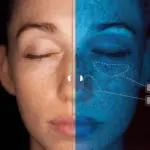Hives (Urticaria)
Home » Conditions » Hives (Urticaria)
Award winning dermatology service, with over 20 years on experience
Short waiting lists, on some occasions offering same week appointments
Safe environment, in Care Quality Commission approved facilities
Hives (Urticaria) Treatments Include:
Everything you need to know.
Hives or urticaria is a common skin condition seen in both adults and children that can occur as a single episode (acute urticaria), or less commonly, it may recur multiple times for longer than 6 weeks (chronic urticaria). Hives is caused due to the immune system releasing histamine into the skin. This substance causes the redness, swelling and itching. The rash can last from minutes to hours but often disappears without a trace within 24 hours.
Alternative names: Urticaria, welts, wheals, nettle rash.
WHAT CAUSES HIVES?
Hives are usually caused by an allergic reaction. Triggers can be identified which often include allergies, environmental temperature changes, pollen, insect bites, animal fur, emotional stress and food. Even though the rash of urticaria is identical in appearance to that caused by an allergic reaction, in most cases no obvious cause can be found. This is classed as ‘idiopathic urticaria’. Hives can also be experienced as a result of stress, tight clothes, exercise, illness or infections.
People who have allergies are more likely to have hives and other health conditions may make you more vulnerable to developing hives.
WHAT ARE THE SYMPTOMS/TYPE OF HIVES?
Hives usually appears as a series of raised, red bumps that come up within minutes and can resemble mosquito bites or nettle rash. It can be limited to a small area or span large expanses of the body. Sometimes there is swelling of the face and eyes (angio-oedema). The rash often resolves over a period of an hour or two, but might last as long as 24 to 36 hours. There are a number of different types of Hives:
ALLERGIC REACTIONS
Hives can be caused by an allergic reaction to a common irritant you may be sensitive to such as foods, animal fur, medications, pollen, and insect bites.
CHRONIC IDIOPATHIC URTICARIA
If the source of hives can’t be identified and the hives are seen for long periods of time, they are known as chronic and idiopathic. About 75% if hives cases are idiopathic which can make them harder to treat and symptoms are experienced for longer.
TEMPERATURE INDUCED HIVES
Changes in temperature caused by cold or hot weather, water, sunlight and exercise can cause hives in some people.
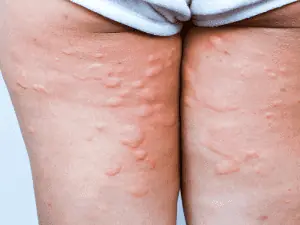
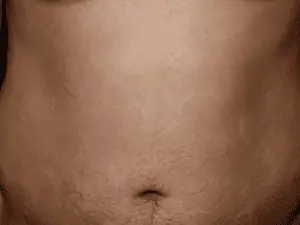
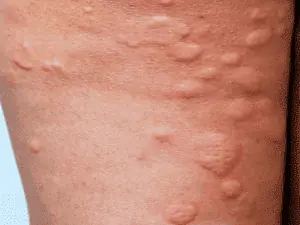
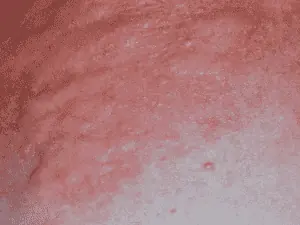
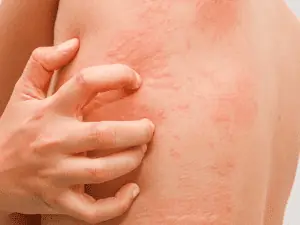
Hives Treatment UK
Most cases of acute urticaria get better without treatment and the symptoms can be effectively treated with antihistamines. For long-term urticaria the treatments aim to relieve symptoms rather than act as a cure. Identifying potential triggers is an important first step though usually a specific offender cannot be found.
Hives treatment in the UK includes antihistamines, short courses of steroid tablets and in very severe, chronic cases medications to dampen the body’s immune system (such as ciclosporin) can be beneficial. Our specialist dermatologists can offer effective treatment to patients to help control your symptoms.
FREQUENTLY ASKED QUESTIONS
HOW CAN HIVES BE ALLEVIATED AT HOME?
If you are suffering from a hives rash, the following can help to alleviate symptoms:
- Put a cold compress on the rash
- Take a cool bath
- Apply aloe vera
- Avoid irritants
- Avoid scratching the rash as this can cause them to spread and become more inflamed
HOW LONG DOES A HIVES RASH LAST FOR?
In acute cases, the rash will appear suddenly and then fade away on it’s own, usually within 24-48 hours. In chronic cases of hives, the rash can last for much longer, often weeks or months. If your rash is persisting it is a good idea to see a dermatologist who can assess your condition and advise the most appropriate treatment.
HOW DO I KNOW MY RASH IS HIVES?
Symptoms of Hives include:
- Red, raised patches on the skin
- Rash of red spots
- Itchy rash
- Rash that feels like it is stinging or burning
- Different size and shapes of rash
- Rashes can appear anywhere on the body in both adults and children
WHAT ARE COMMON TRIGGERS FOR HIVES?
Hives can be caused by a trigger that causes high levels of histamine to be realised to the skin, common triggers include:
- Food
- Pollen
- Plants
- Insect bites/stings
- Chemicals (often in cleaning products)
- Latex
- Dust mites
- Heat
- Sunlight
- Exercise/Sweat
- Medicines
- Infections
- Emotional Stress
REQUEST A CALL BACK
Please fill in this form and one of our team will give you a call back to arrange a consultation with one of our expert dermatologists.
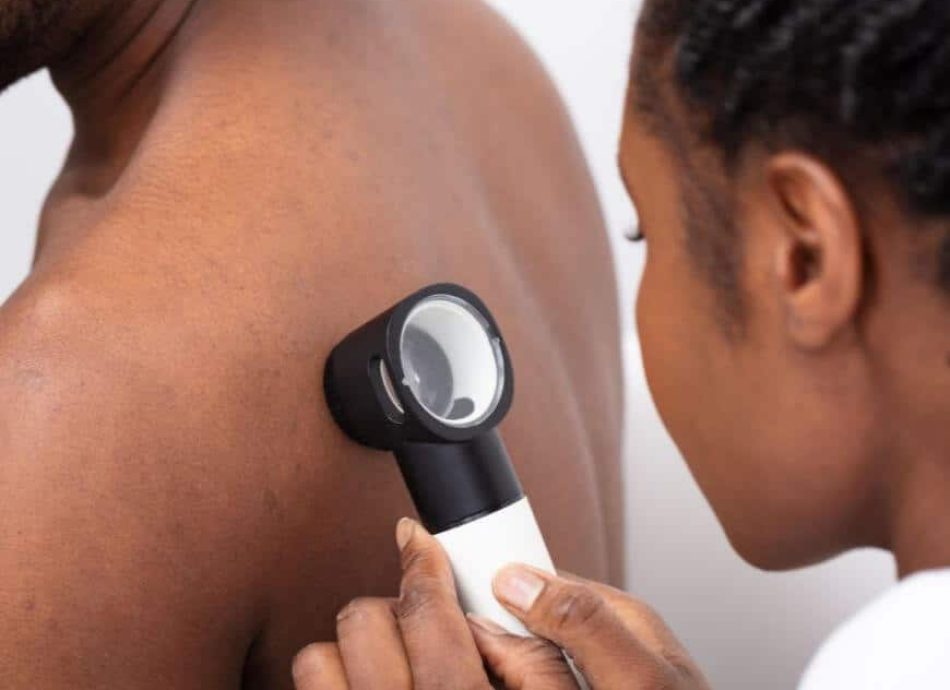
HEAR FROM OUR PATIENTS
WHY TREAT YOUR HIVES AT STRATUM DERMATOLOGY CLINICS?
Hives are an extremely common skin condition and we understand the impact that severe rashes can have on daily life.
We work with leading experts in the field of dermatology to ensure you have the best experience and treatment. Stratum Dermatology Clinics are regulated by the Care Quality Commission, are part of the British Association of Dermatologists and are top-rated by patients on Doctify so you can assure safe and effective hives treatment in the UK with us.
latest INSIGHTS AND ADVICE

Guide to Fall Skin Conditions
Autumn, with all its stunning colours, also brings some challenges for our skin. As the air gets cooler and the leaves turn vibrant shades, it’s a reminder that we’re steadily approaching winter. Keeping your skin glowing and healthy during this transition from summer to the
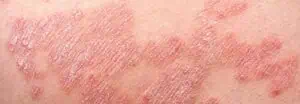
Eczema Awareness Month – Complete Guide on Eczema
October is Eczema Awareness Month. For individuals living with eczema, you will be all too familiar with the trials of handling this skin complaint. It’s our mission throughout October and beyond to educate, support and empower you by delivering invaluable insights on its origin, available

Understanding Varicose Veins: Symptoms, Treatments and Prevention
Varicose Disease Awareness Month focuses on raising awareness about varicose veins, a common but often ignored condition affecting millions globally. This September, we’re highlighting the importance of early detection, available treatments and lifestyle changes to effectively manage varicose veins. By increasing awareness, we aim to
